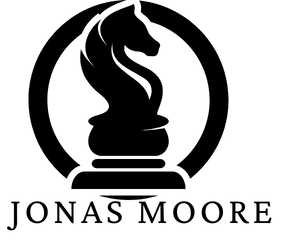How can a UK-based import business specializing in rare books navigate copyright and import regulations?

In the age of global commerce, the import and export of goods is a vital part of the business ecosystem. This universal principle applies as much to large multinational corporations as it does to smaller, specialized businesses, such as a UK-based importer of rare books. However, navigating the complex world of international trade involves more than just sourcing goods and identifying a buyer. It requires an understanding of copyright laws, import regulations, and the intricacies of the legal system.
Understanding Copyright Regulations
Regardless of the product, the first step in the import and export process is understanding the intellectual property rights involved. The copyright is a type of intellectual property that provides the creator of an original work exclusive rights to it, usually for a limited time.
A lire en complément : How to comply with the UK's Consumer Rights Act in an online retail business?
For a UK-based import business that specializes in rare books, understanding copyright is crucial. The UK adheres to the Berne Convention for the Protection of Literary and Artistic Works. This international agreement offers copyright protection to authors in its signatory countries. If the rare books you're importing are still under copyright, you'll need to ensure you have the rights to do so. Unauthorized importation of copyrighted works can lead to fines and legal action.
Navigating Import Regulations
When it comes to trading goods globally, import regulations vary from country to country. In the UK, Her Majesty's Revenue and Customs (HMRC) is the government department responsible for the collection of import duties and enforcing import regulations.
En parallèle : What specific preparations are needed for a UK-based bridal shop to comply with consumer protection laws?
Before bringing a product into the country, thorough research into these regulations is necessary. For example, if your business specializes in importing rare books, it's essential to understand the implications of the Import of Cultural Goods Regulations. This law aims to prevent the illicit trade in cultural property, and rare books can fall under this category.
Additionally, you need to be familiar with the customs processes. All goods imported into the UK must be declared to HMRC using a process known as 'entry'. You must know the commodity code of your product, as this determines the rate of duty and VAT applied to your goods.
Complying with Customs Duties and VAT
Importing goods into the UK involves paying customs duties and Value Added Tax (VAT). The amount payable depends on the value of the goods, their transport charges and insurance costs, their classification as per the UK Trade Tariff, and their country of origin.
For businesses dealing with rare books, it's crucial to remember that the import of antiques, works of art, and collectors' pieces might be eligible for a reduced or zero rate of duty and VAT. However, specific conditions must be met, and necessary documentation should be in place.
Managing International Trade Agreements
In the context of the international trade of goods, the role of trade agreements cannot be overlooked. These international agreements are designed to reduce or eliminate trade barriers, thus promoting economic integration and cooperation among countries.
For a UK-based importer of rare books, this could mean the difference between a profitable venture and an economically unfeasible one. For instance, the UK has a trade agreement with many countries, allowing goods to be imported under preferential terms. It's crucial to verify if such an agreement exists with the country from which you are importing.
Protecting Your Business with Patents and Intellectual Property Rights
Lastly, an import business must consider the protection of its own intellectual property rights. If your business has invested time and resources into sourcing rare books, it's crucial to consider whether these efforts warrant a patent. A patent is a form of intellectual property that gives its owner the legal right to exclude others from making, using, selling, and importing an invention for a limited period.
In the case of rare books, one example of this might be a unique process or system you've developed for restoring or preserving the books. Obtaining a patent for this invention could offer a competitive advantage and protect your business from copycats.
In conclusion, operating an import business involves a steep learning curve. From understanding copyright to navigating import regulations, from managing customs duties and VAT to protecting your own intellectual property, it can seem like a daunting process. But with the right knowledge and preparation, it's entirely possible to build a successful import business.
Securing an Export License and Letter of Credit
To import rare books into the UK, an export license from the country of origin may be needed. This is especially pertinent if the books are classified under cultural property or of significant age. Export licenses are typically issued by the governmental department overseeing cultural affairs or trade in the country from which the books are being exported. The process to obtain an export license varies from country to country, but it usually involves an application process that confirms the items’ cultural and monetary value, their provenance, and their legality for export.
In addition to an export license, a letter of credit may be required. A letter of credit is a document issued by a bank that essentially guarantees a buyer's payment to a seller within a specified timeframe. For an import business, a letter of credit can provide security and credibility in international trade transactions. It ensures that the seller, in this case, the exporter of the rare books, will receive payment as long as certain delivery conditions have been met.
Navigating the Role of Licensed Customs Broker and Customs Bonds
When importing goods into the UK, a licensed customs broker can be an invaluable resource. A customs broker is a private individual or corporation licensed by the government to assist importers and exporters in meeting the varied and often complex import and export regulations. They can offer guidance on issues such as customs clearance and import controls and can assist with the import licensing process.
A customs bond, also known as a surety bond, is a contract used for guaranteeing that a specific obligation will be fulfilled. In the context of an import business, a customs bond guarantees that the importer will pay all duties and taxes owed to the government. This bond is often required for goods valued over a certain amount or classified under certain categories.
Employing a licensed customs broker and obtaining a customs bond can minimize complications and ensure a smooth import process. The broker's expertise can help you navigate the often complex world of international trade while the customs bond provides financial security.
Conclusion
Running a UK-based import business specializing in rare books is no small task. It requires a comprehensive understanding of intellectual property, an awareness of import and export licensing, and a familiarity with trade agreements. Additionally, the services of a licensed customs broker and the security of a customs bond can help in seamless customs clearance and import control management.
Moreover, considering patent protection for unique processes developed within your business can provide a competitive edge and protect your investment. Each step, from obtaining an export license to protecting your own intellectual property rights, plays a vital role in the success of your business.
While the journey may seem daunting, remember that there are numerous resources and trade assistants available to help along the way. With careful research, meticulous preparation, and perhaps a bit of patience, your rare book import business can thrive in the dynamic world of international trade.
